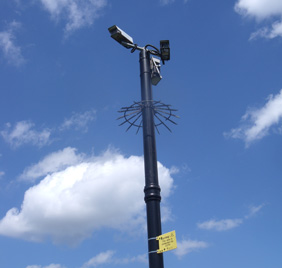Author: Shoshana Zuboff
ISBN No: 9781781256855 (paperback)
Review date: 26/04/2024
No of pages: 704
Publisher: Profile
Publisher URL:
https://profilebooks.com/the-age-of-surveillance-capitalism.html
Year of publication: 28/10/2019
Brief:
She starts her work as she means to go on with a definition, or rather several; ‘surveillance capitalism‘ as a ‘new economic order’ where the raw material is not steel or coal, but ‘human experience’. It’s also a ‘rogue mutation of capitalism’ that sees concentration of wealth, knowledge and power’, that is, the very opposite of what we were told and imagined 20 years ago (the ‘digital dream’, Zuboff recalls) when first using email and internet search engines; it’s ‘as significant a threat to human nature in the 21st century as industrial capitalism was to the natural world in the 19th and 20th’, thus locating surveillance capitalism in time; and it has a political dimension, as it challenges democracy by creating new power, and expropriating ‘critical human rights that is best understood as a coup from above’. Surveillance capitalism is about data, and ‘life in the hive’, but there’s also a physical aspect, as set out at the start, when a paper mill manager in 1981 poses the author a question: ‘Are we all going to be working for a smart machine, or will we have smart people around the machine?’ In other words, who will be the master? As that date shows, we’ve had these questions in front of us for a while, although only the blink of an eye in historical terms. A generation or two ago we were letting computers into workplaces; how they’re in the home and everywhere.
She’s been writing about the subject for a while, such as in scholarly journals, describing the new phenomenon with a nod to George Orwell’s Big Brother as ‘Big Other‘.
It’s striking how relevant Orwell’s 1984 continues to be. In his talk to the ST Dublin talk in September, Mike Gillespie mentioned in passing how Orwell’s novel mentioned gait analysis (remarkable that the man could write of such a thing in the 1940s, that is only now becoming a reality with data analytics). A scene in 1984 comes to mind when the hero Winston Smith and heroine Julia visit the home of O’Brien, a higher-up in the Party. O’Brien presses a switch on the wall and the voice on his telescreen stops. Winston is in such a panic, he blurts out: ‘You can turn it off!’
‘Yes,’ O’Brien said, ‘we can turn it off. We have that privilege.’ (chapter VIII, part two)
Orwell didn’t and couldn’t imagine surveillance beyond screens in the wall, rather than our hand-held devices, which would have been even better for Big Brother’s purposes, as holders can be tracked. Zuboff sets the bar as high as it can possibly be at the beginning; will ‘this emerging civilisation be a place that we can call home?’ As she sets out, smart home devices gather data, and apps can gather data from other, connected products: ‘cars, ovens, fitness trackers and beds’. Who’s in control of these ‘immense new stores of knowledge and therefore power’? Instead of the right to privacy and to hold your own data, smart home devices such as Nest are ‘a bold market venture’. The security angles are; the developers of these products take little responsibility for security of the data, let alone once the data’s sold on; and as so many products can be connected, one unpatched and insecure product can lead you to be hacked. Surveillance capitalism, to take another definition of Zuboff, is a ‘darkening of the digital dream’, and a ‘rapid mutation into a voracious and utterly novel commercial project’.
There’s a new market and trade in the data that shows our behaviour – when we turn off lights and go out, where we go, what we view on our phones. Given the urge to compete in the market, ‘the goal now is to automate us’, to shape our behaviour. It affects so much, from physical space (what it looks like and our access to it, or not), to sports people having to keep up a social media presence to stay popular and in a job, which implies psychological change (‘a psychic numbing’).
The worrying difference between old industrial capitalism is that you could see the belching factory chimneys even if the children at work inside the mills were hidden; we can’t see the zeroes and ones in the network, through the router, let alone the wireless ones. Another difference, that Zuboff early on raises, is that surveillance capitalism is unprecedented, and hard to recognise, such as the car in 1900 being named the ‘horseless carriage’. Even terms such as personal privacy and a company monopoly are falling short, she warns.
While Zuboff is far from the only thinker to raise this question – see the writer and blogger Bruce Schneier for example – she’s outstanding for setting out how this new sort of capitalism already is deeply affecting politics (how votes are silently, sinisterly influenced), society (our consuming habits) and not only the economy (retail, the media, insurance each disrupted).










